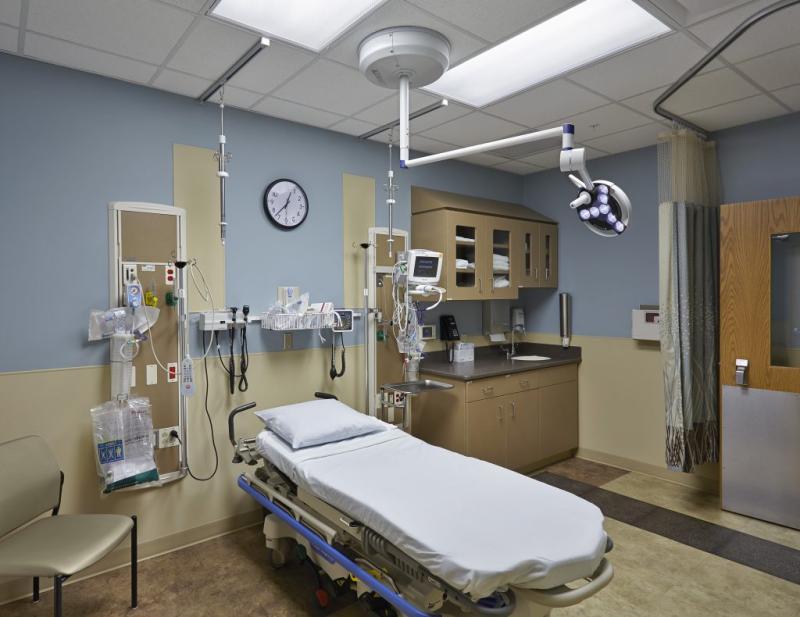Do all hospitals have emergency rooms?
In many countries, most hospitals have emergency rooms (ERs) or emergency departments that are equipped to handle medical emergencies 24 hours a day, 7 days a week. However, there can be variations in the level of emergency care available at different types of hospitals. Here are some points to consider:
General Hospitals:
- Most general hospitals have emergency rooms. These hospitals are equipped to handle a broad range of medical emergencies and often have various specialties and services available.
Specialty Hospitals:
- Some hospitals are specialized and may not have a full-scale emergency department. They may, however, have arrangements to stabilize patients in case of emergencies before transferring them to a general hospital.
Critical Access Hospitals:
- In some rural or remote areas, there are critical access hospitals that may have limited emergency services. These hospitals are designed to provide essential emergency care but may transfer patients with more complex needs to larger facilities.
Urgent Care Centers:
- Urgent care centers are not hospitals but are facilities that provide immediate care for non-life-threatening conditions. They may not have the same level of resources as a hospital emergency room.
Free-Standing Emergency Departments:
- Some areas have free-standing emergency departments that are not attached to a hospital. These facilities are designed to provide emergency care similar to a hospital ER but may not have the same range of services.
It's important to note that while most hospitals have emergency rooms, the availability of certain specialized services may vary. In some cases, patients may be transferred to a different facility for specialized care after initial stabilization at the emergency room.
If you need emergency medical care, it's crucial to call emergency services (such as 911 in the United States) or go directly to the nearest emergency room. In non-emergency situations, urgent care centers or primary care providers may be appropriate depending on the nature and severity of the medical issue.
Hospital essentials: Do all healthcare facilities have emergency rooms?
No, not all healthcare facilities have emergency rooms. Emergency rooms (ERs) are specialized units within hospitals that are equipped to provide immediate care for patients with life-threatening or critical injuries or illnesses. They are typically staffed by a team of emergency physicians, nurses, and other healthcare professionals who are trained to handle a wide range of emergencies.
Emergency care availability: Understanding the presence of ERs in different hospitals.
The availability of ERs varies depending on the type of hospital. General hospitals, which provide a wide range of medical services, typically have ERs. However, some specialized hospitals, such as psychiatric hospitals or rehabilitation hospitals, may not have ERs.
In addition, the size and location of a hospital can also affect whether or not it has an ER. Small hospitals in rural areas may not have the resources to support an ER, while larger hospitals in urban areas are more likely to have one.
Specialized care centers: Alternatives for emergencies in hospitals without ERs.
If you are in an area without an ER and you are experiencing a life-threatening or critical injury or illness, you should call 911 or go to the nearest urgent care center. Urgent care centers are not equipped to handle the same level of emergencies as ERs, but they can provide treatment for a variety of minor injuries and illnesses.
In some cases, you may also be able to receive care at a specialized care center. For example, if you are experiencing a mental health crisis, you can go to a psychiatric emergency room. If you are experiencing a heart attack or stroke, you can go to a cardiac or stroke center.
Urban vs. rural: Variations in emergency room access across different locations.
There are significant variations in emergency room access across different locations. In general, people in urban areas have better access to ERs than people in rural areas. This is because urban areas tend to have more hospitals, and those hospitals are more likely to have ERs.
The lack of ERs in rural areas can have a significant impact on the health of residents. For example, studies have shown that rural residents are more likely to die from preventable causes, such as heart attacks and strokes.
Emergency preparedness: What to do if your local hospital lacks an emergency room.
If you live in an area without an ER, it is important to be prepared for emergencies. Here are a few things you can do:
Learn the location of the nearest urgent care center or specialized care center.
Keep a list of emergency phone numbers handy.
Create an emergency plan for your family.
Make sure you have a first aid kit at home.
Take a first aid and CPR course.
By taking these steps, you can help to ensure that you and your family will be able to get the care you need in an emergency.
Here are some additional tips for emergency preparedness:
Have a plan for how you will contact emergency services in the event of an emergency.
Know your local emergency numbers, including 911.
Have a designated meeting place for your family in the event of a disaster.
Make sure you have a working phone and a way to charge it in the event of a power outage.
Have a way to access information about the emergency, such as a radio or television.
Have a plan for how you will shelter in place or evacuate in the event of a disaster.
By being prepared for emergencies, you can help to ensure that you and your family will be safe in the event of a crisis.













